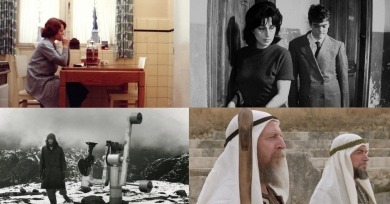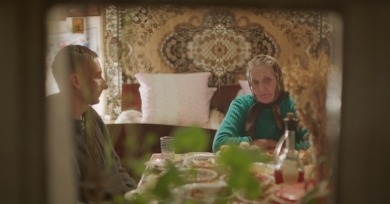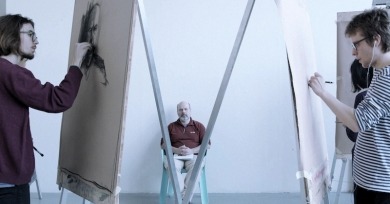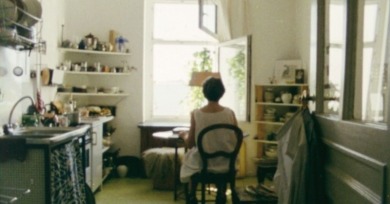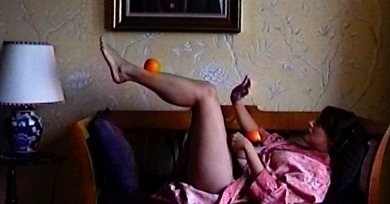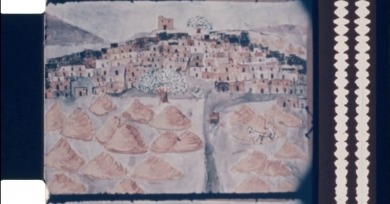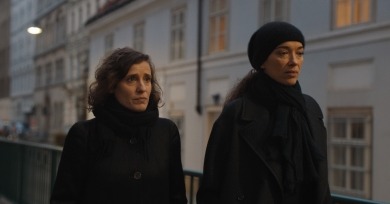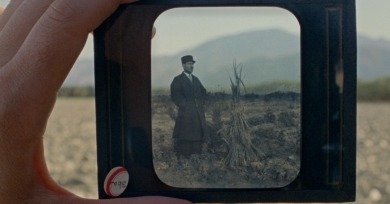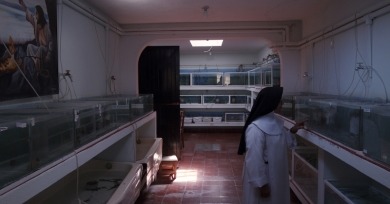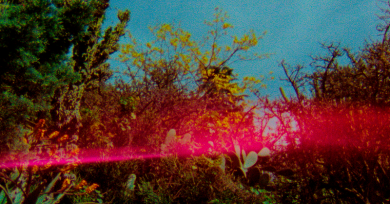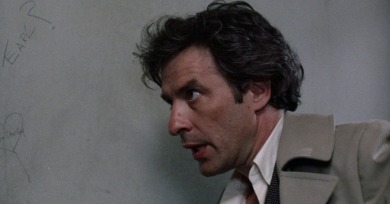At the Museum
Goings-on at Museum of the Moving Image
Jeanne Dielman asserts the importance of its subject while also asking us to reconsider what we look for in—and how we look at—a movie. We inhabit what feels like a simulation of real time, confined except for the occasional errand, to the interior of 23 quai du Commerce.
The focus on the packaging and commodification of these plants and vegetables demystifies the agrestal fantasy of so many of our products. At first numbing, Ortín’s images of rote mechanical production begin accruing a subtlesense of dread, appearing as an unbroken and uncaring process.
Melnyk had set out to make a strictly observational documentary. On the ground in Stuzhytsia, he found it impossible to maintain the distance this approach required.
Art Talent Show illustrates how hyper-individualism dominates artistic philosophy in the younger generation; many prospective students talk about wanting to communicate their essence or their worldview with their work.
A terrible event occurs, which would send most families into spontaneous combustion, but in true Fukada fashion, everything quietly implodes, and everyone is left to grapple with things in messy, dirty ways that feel truer to how our hearts and brains function.
Beavers is a uniquely formal lyricist, and his films typically consist of the rhythmic analysis of a narrow band of content, spiraling out from a core of significant people or objects to examine their immediate environment.
During the first days of the 2020 lockdown, when New Yorkers saw time opening out abyssally before them and for filmmakers any kind of large-scale production was impossible, Artemis Shaw found her old camcorder in her parents’ apartment.
Romvari and Xu are compassionate image-seekers, yet they also subtly interrogate the systems surrounding their subjects.
The documentary functions as a living archive, a collection of 20 films made between 1964 and 1982 reporting, commenting, and philosophizing on the Palestinian struggle.
Amidst this beautiful and mysterious backdrop, sequences occur at random without explanation and do not always add up to a broader narrative. But much of its strength lies in the fact that very little happens and even less seems to connote meaning in the way we’re used to in cinema.
In her loosely structured, sensorial documentary, Long maps this history out along the San Andreas Fault, which splinters the state from north to south, capturing the textures and colors of the mountainous valley on gorgeously grainy 16mm.
Nominally, A Common Sequence is a documentary, though, threading together meditations on colonialism, environmental degradation, capitalism, labor and immigration, machine learning and AI, DNA harvesting and genomic manipulation, the film adopts a nonlinear, almost impressionistic approach.
Herbaria offers audiences a unique meditation on extinction and preservation in the twinned worlds of plants and film. Shot on 35mm and 16mm, this mysterious, at times cryptic, essayistic work takes viewers to two locations: the seemingly disparate Buenos Aires Botanical Garden and the Museo del Cine.
The ghost of Bogart hovers over two films from the 1970s that are screening in the Snubbed series, selections that exemplify the Academy’s indifference to unlikable antiheroes adrift in diffuse underworlds.
